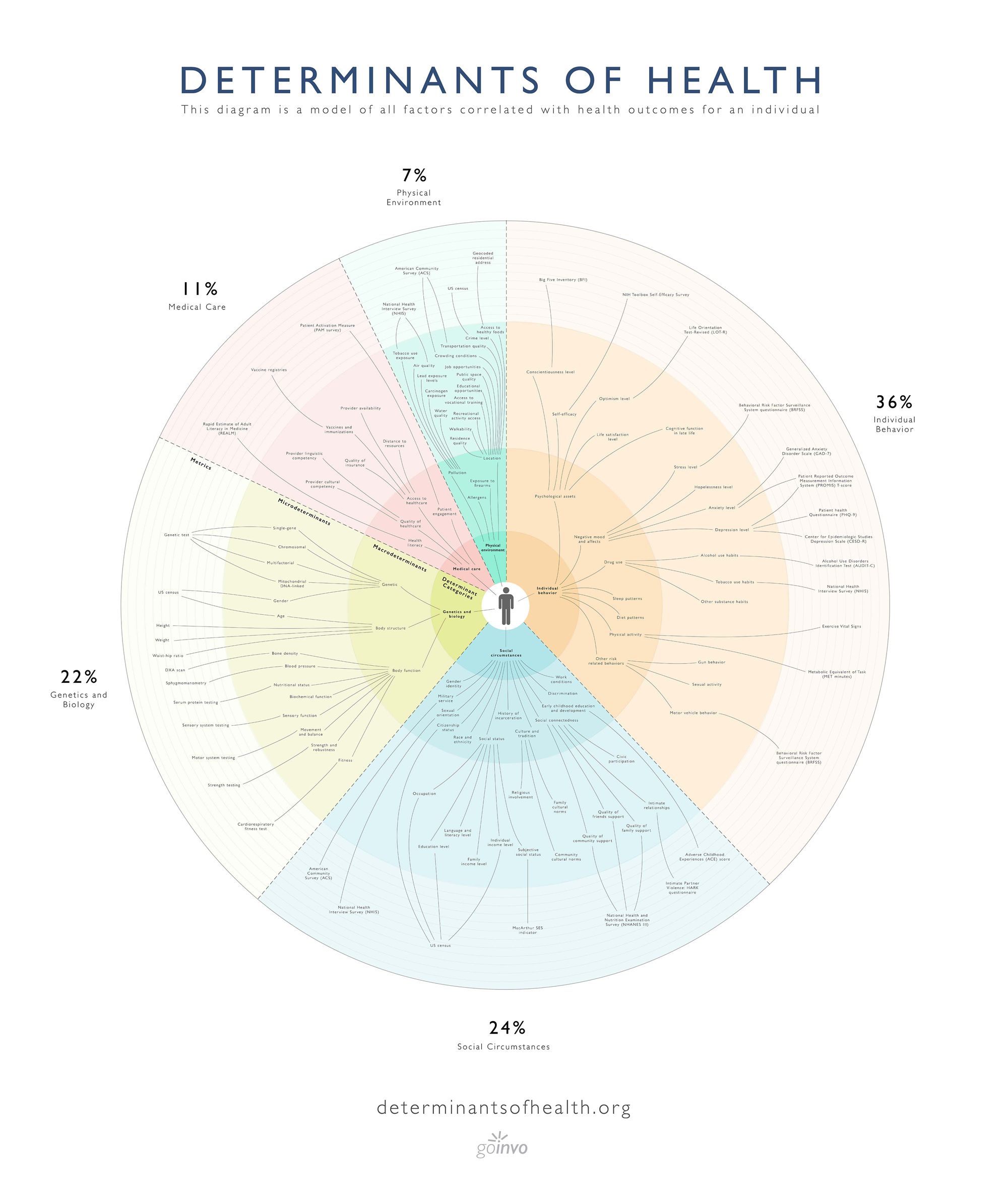
As I started healing my relationship with my body and food there were some critical texts I read that deepened my understanding of the true meaning of health. Many of my (and society’s) previously held beliefs were biased, exaggerated, and based on misinformation. If you take nothing else from my message, I implore you to educate yourself on a few key takeaways:
In 1998, the National Institutes of Health changed the threshold for what was considered a ‘normal’ BMI causing millions of Americans to become ‘overweight’ overnight without having gained a pound. This change was based on a report funded by pharmaceutical companies that make weight loss drugs. The term ‘obesity’ is determined by the BMI scale which was developed by a Belgian astronomer and statistician in 1832 and was never intended to be used as a measure of health. It is based on the height and weight of primarily white, middle- to upper-class European males, which means it doesn’t account for ethnic diversities in body composition. Doctors today use this scale to measure a person’s health, even though it doesn’t factor in age, sex, body size, fat distribution, or behaviors and lifestyle. Effectively, the ‘obesity epidemic’ that we’re sold to believe in is designed for pharmaceutical and weight loss industries to profit off of.
Weight-based prejudice is more socially acceptable than racism and sexism. Weight discrimination is rampant in the workplace, schools, universities, restaurants, stores, and unfortunately, the healthcare industry. The fear of being told that the solution to an ailment is to lose weight (when it’s often unrelated to the symptoms, and wouldn’t be the prescription for a thin person) can result in depression, anxiety, low self-esteem, inflammation, and worse, that people in larger bodies avoid seeking healthcare altogether. On top of that, weight cycling, the repeated losing and gaining of weight, is shown to be more detrimental to health (and less sustainable) than the weight loss prescription given in the first place. See the vicious cycle?
Correlation does not equal causation. Just because two things correlate doesn’t mean one necessarily causes the other. Taking into account that many studies published on nutrition are industry-sponsored, it’s important to be careful with how we interpret the reports. Many commonly held beliefs about weight are simply not true like ‘obesity’ causes type 2 diabetes, heart disease, and stroke. Correlations between two things can be caused by a confounder, or a third factor, such as weight discrimination, stress management, access to healthcare, etc., that affects both of them. Christy Harrison explains, ‘Scientists themselves often contribute to this dynamic by summarizing their own results in a simplified and sensationalized way, which helps them attract media attention that increases their visibility, thereby upping their ability to get funding for future research—and then the cycle continues.’
Diet and exercise only make up for 15% of a person’s health outcomes. Food is medicine? The determinants of health encompass a variety of factors such as genetics and biology, pollution exposure, access to clean food and water, poverty, job and housing insecurity, education, access to healthcare, healthy relationships, and coping skills. The pursuit of health, which diet culture proclaims as a morally virtuous, is in fact a matter of social justice.
As Dr. Lindo Bacon states, we are victims of fat politics. ‘Drug companies sponsor the research that defines health issues and fund the researchers who sit on government panels; government agencies rely on researchers to provide the data to support their funding requests; and drug companies rely on health advisories issued by government agencies to promote and justify their products.’
If you’re interested in learning more, I highly recommend reading Anti-Diet by Christy Harrison and Health At Every Size by Dr. Lindo Bacon. Breaking up with diet culture is as much an emotional process as it is intellectual. Getting the facts straight will accelerate you toward the truly health promoting practices of body neutrality and eating intuitively.